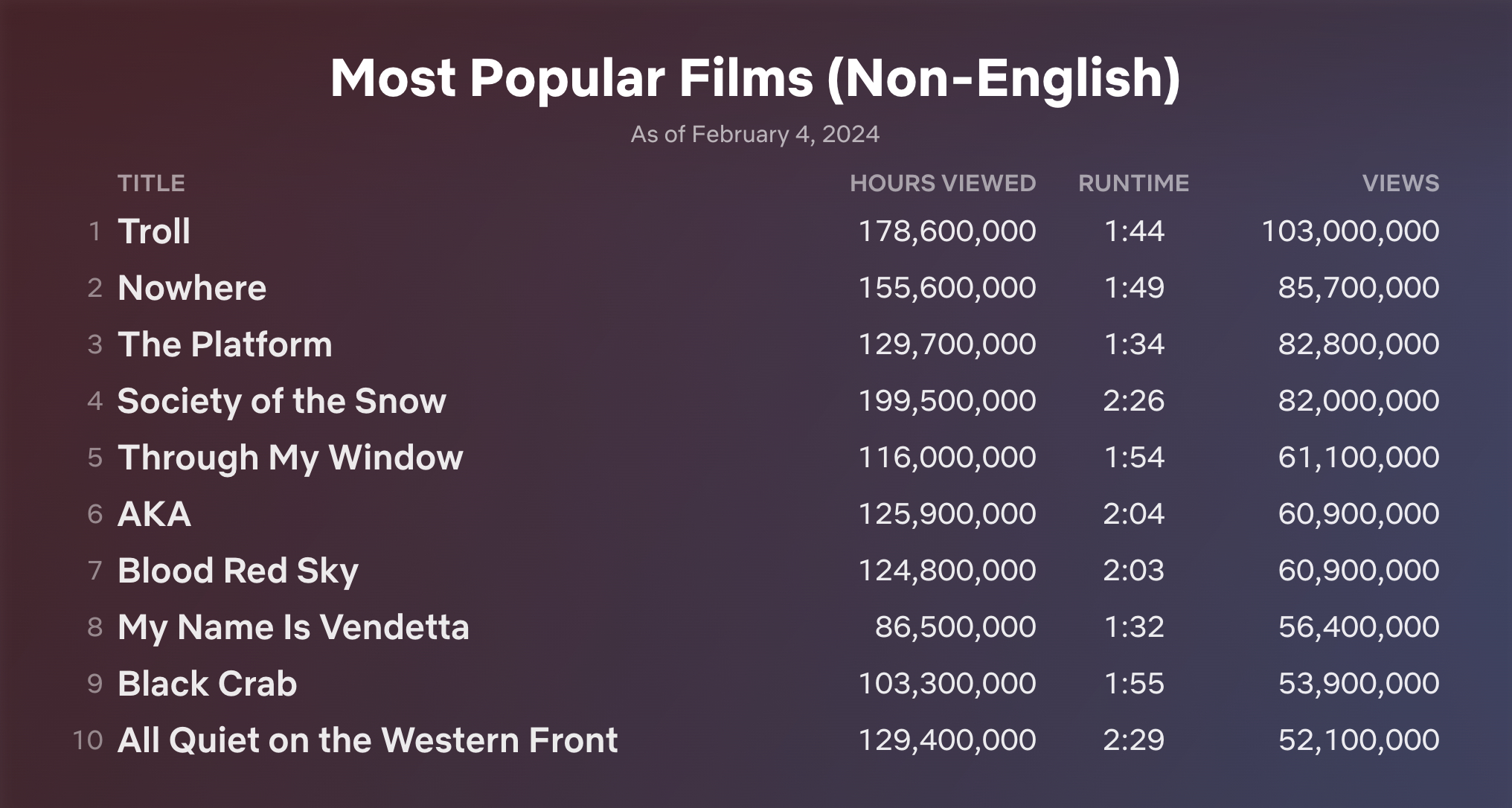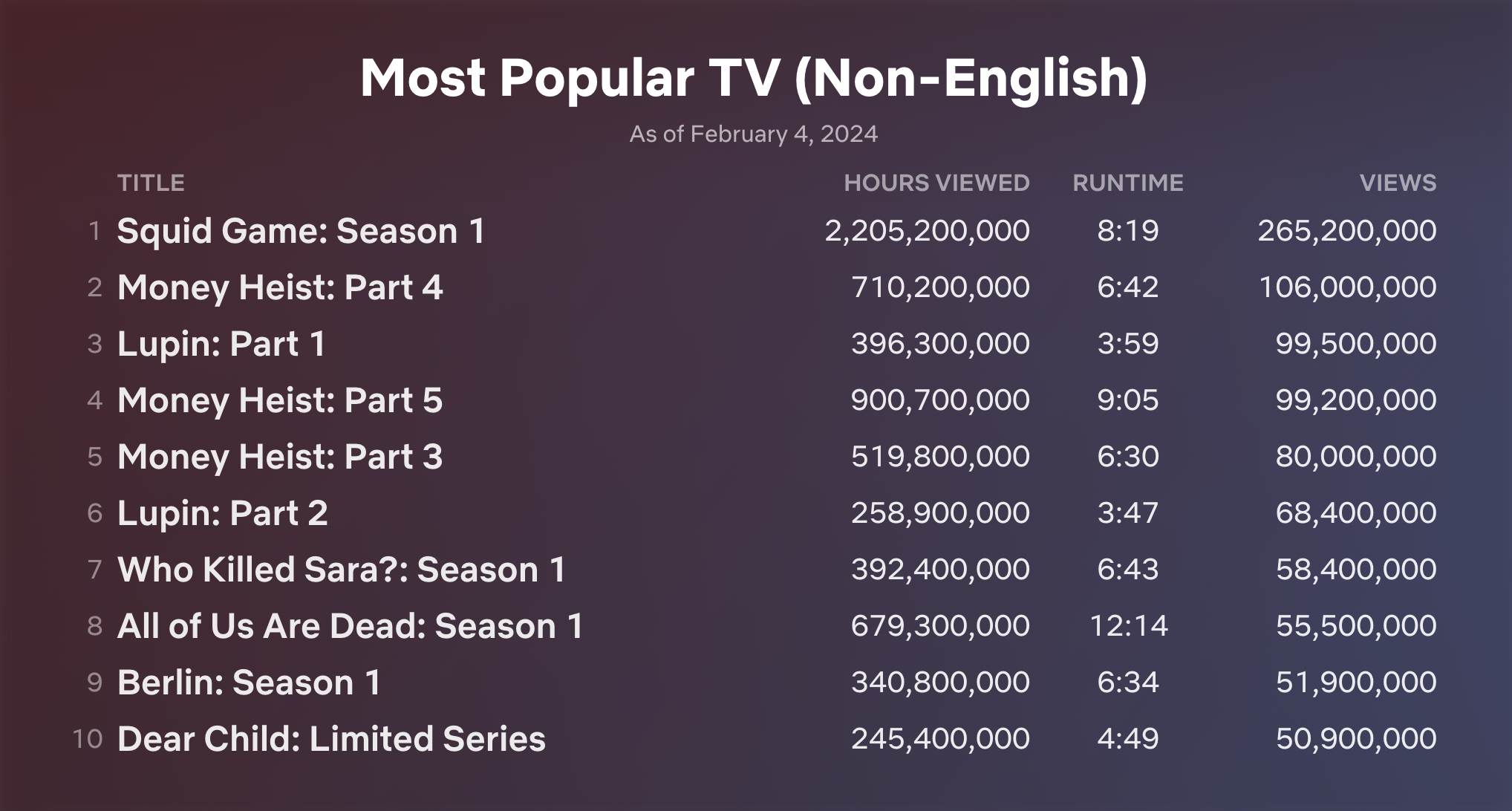
The smarter way to stay on top of the streaming and OTT industry. Sign up below.
You are now subscribed
Your newsletter sign-up was successful
“Hollywood should be jealous of what Spain is doing,” said Netflix’s VP of Spain, Diego Ávalos, on a panel at the MIA Market last October.
Considering the recent success of Spanish filmmaker J.A. Bayona’s Andes plane-crash survival thriller Society of the Snow — which earned the No. 4 spot among Netflix’s most popular non-english films of all time with nearly 200 million viewing hours — that statement might not be so far-fetched.
Indeed, Society of the Snow isn’t Netflix’s only internationally successful title from the southern European production hub, which has become one of the streamer’s hottest territories when it comes to churning out hits.
While Society of the Snow has already earned multiple Oscar nominations, another Netflix Spanish co-production, original series Elite, is headed into its eighth and final season. Meanwhile, another Spanish-produced survival thriller, Nowhere, saw similar international success for Netflix last fall, spending 15 weeks on the streaming company's top 10 weekly rankings, and even landing at the No. 2 spot among the streamer’s most popular non-english films with 155.6 million hours watched.
The content acquisition strategy that led to Netflix’s slew of successful film and series titles from Spain dates back to 2017, with the release of Álex Pina’s heist thriller La Casa De Papel onto Netflix’s Spanish streaming service.
As detailed in a thorough Vulture overview published Monday on the emergence of Netflix's Spanish production operation, original series La Casa De Papel grew, sans any promotional muscle, into a local Spanish-language hit.
But it wasn’t long before Netflix recut the show and gave it a new name for English audiences: Money Heist.
The smarter way to stay on top of the streaming and OTT industry. Sign up below.
By 2018, Netflix proclaimed Money Heist its most popular non-English series ever, and the series still accounts for three of the streamer's 10 most viewed international series seasons of all time.
Netflix capitalized on the success of the title, releasing a two-part South Korean adaptation of the series in 2022, as well as prequel series, Berlin, which debuted at the top of the streamer’s charts in December, earning 277.7 million viewing hours in its first three weeks.
During Netflix's Q4 earnings call in late January, CFO Adam Neumann even pointed specifically to the success of Spanish titles Berlin and Nowhere as a key driver for his company's 13% Q4 growth in the EMEA quadrant. Netflix generated more than $10.56 billion in Europe, the Middle East and Africa in 2023.
That number far outpaces any of Netflix’s territories outside the U.S. and Canada.
The core thesis of Netflix’s international acquisition strategy could be described this way: provide resources to local creators to produce content for local audiences, and cash in on the few titles that see breakout global success.
Much as Squid Game’s popularity helped drive an increase in the streamer’s investment into Korean content, Netflix has steadily poured more resources into Spain and other Spanish-speaking countries since the premier of Money Heist. see if we can get a investment
Notably, Netflix co-CEO Ted Sarandos told investors back in 2018 that his goal for international content was “a combination of coproducing with local producers in other countries, shows that then air on a network in that country and then premier on Netflix."
Jack Reid is a USC Annenberg Journalism major with experience reporting, producing and writing for Annenberg Media. He has also served as a video editor, showrunner and live-anchor during his time in the field.


